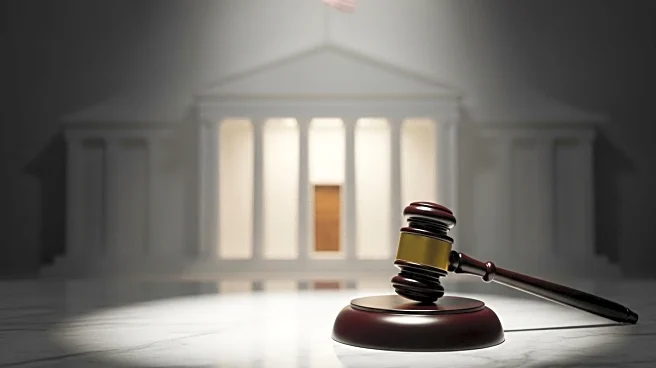What's Happening?
Washington, DC Mayor Muriel Bowser announced a new executive order aimed at ending the federal emergency declared by President Trump. The order requires coordination with federal law enforcement but is not an endorsement of the ongoing federal involvement. Bowser emphasized that the emergency, set to end on September 10, can only be extended by Congress. Republican senators, including Mike Lee, have praised Trump's efforts to address crime in DC and suggested reforms to the Home Rule Act, which governs local self-governance in the capital. The act allows the president to control the city's police during emergencies. Bowser's order continues coordination with federal law enforcement but criticizes the presence of the National Guard and ICE operations.
Why It's Important?
The situation highlights the tension between federal authority and local governance in Washington, DC. The involvement of federal law enforcement in local matters raises questions about the balance of power and the autonomy of the district. The debate over the Home Rule Act and potential reforms could have long-term implications for DC's self-governance. The issue also reflects broader political divides, with Republican support for federal intervention and Democratic opposition. The outcome could influence future federal responses to crime in other cities and impact the relationship between local and federal authorities.
What's Next?
As the September 10 deadline approaches, Congress will need to decide whether to extend the federal emergency. The debate over the Home Rule Act may lead to legislative proposals to reform or repeal the act. Local and federal officials will continue to navigate the complexities of law enforcement coordination. The situation may prompt further discussions on the role of federal intervention in local governance and its implications for other cities facing similar challenges.








